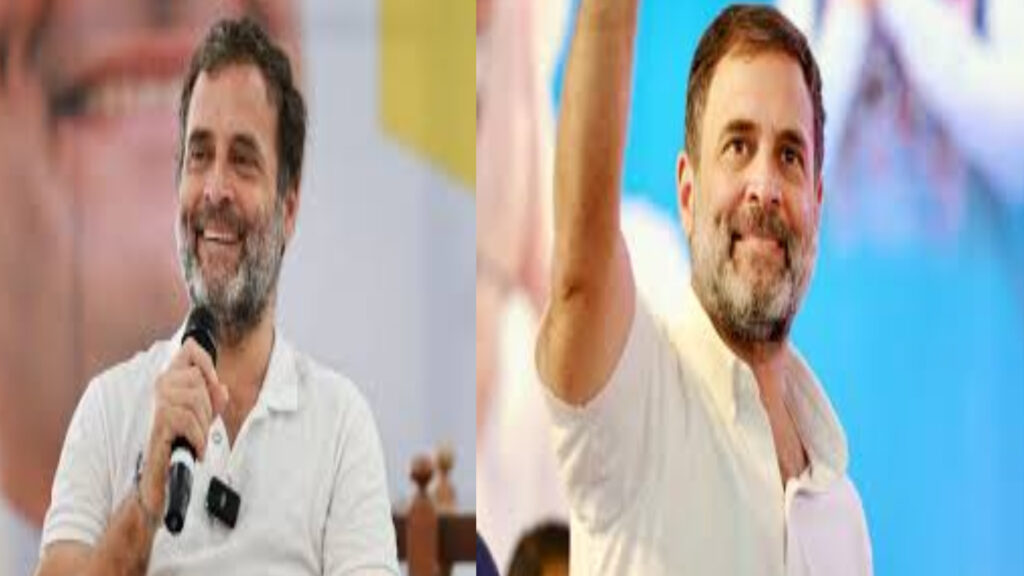Rahul Gandhi is a prominent figure in Indian politics, known for his lineage as well as his own contributions to the political sphere. Understanding his background and political journey is crucial to grasp the complexities of Indian politics and the role of dynastic leadership within it. This exploration delves into Gandhi’s early life, education, political career, challenges, and his vision for India, offering insights into the person behind the politician.
Early Life and Education
Rahul Gandhi hails from the influential Gandhi-Nehru family, which has been at the forefront of Indian politics for several generations. His upbringing was marked by the shadow of his family’s political engagements, alongside the personal tragedy of losing his grandmother, Indira Gandhi, and father, Rajiv Gandhi, to assassinations. Despite these challenges, Gandhi pursued higher education, earning degrees from prestigious institutions abroad, including Harvard University and the University of Cambridge, under a pseudonym for security reasons. These experiences abroad shaped his worldview and equipped him with a global perspective on governance and democracy.
Political Inception
Gandhi’s entry into politics in 2004 was a turning point, signaling a new era for the Indian National Congress (INC). Representing Amethi, a constituency with deep familial ties, he embarked on a political journey characterized by both promise and scrutiny. Over the years, Gandhi has held several key positions within the INC, driving the party’s vision and strategy.
Leadership and Ideology
Rahul Gandhi’s leadership style is notable for its emphasis on inclusivity, democracy, and grassroots mobilization. He advocates for policies that prioritize social welfare, economic equality, and sustainable development. Despite facing challenges, including electoral setbacks and internal party dynamics, Gandhi has remained steadfast in his commitment to a progressive and inclusive political discourse.
Challenges and Milestones
Gandhi’s political career has been a roller coaster of highs and lows. He has faced significant challenges, including criticisms of dynastic politics and questions about his leadership capabilities. However, his tenure has also seen important milestones, such as the INC’s role in passing landmark legislation and initiatives aimed at social welfare and economic reform.
Controversies and Criticisms
Like many public figures, Gandhi has not been immune to controversies and criticisms. These have ranged from political gaffes to debates over his leadership style. Nonetheless, he has often addressed these challenges head-on, using them as opportunities to clarify his stance and policies.
Vision and Advocacy
Rahul Gandhi envisions an India that balances economic growth with social justice. He champions policies that support education, healthcare, and environmental sustainability. His advocacy for youth empowerment and digital innovation reflects a forward-looking approach to governance.
Personal Life
Beyond politics, Gandhi is known for his interest in travel, sports, and meditation. These hobbies offer a glimpse into the personal side of a public figure, humanizing him and providing a break from the political arena.
Future Prospects
Looking ahead, Rahul Gandhi’s journey is far from over. He continues to be a key player in shaping India’s political landscape, with the potential to influence the nation’s trajectory towards modernity and inclusivity. His ongoing engagement with the youth and focus on progressive policies underscore his vision for an India that embraces change while staying true to its democratic values.
Conclusion
Rahul Gandhi’s political odyssey is a testament to the challenges and opportunities of leadership in the complex tapestry of Indian politics. Moving beyond his family’s legacy, he has established himself as a leader committed to the ideals of democracy, inclusivity, and progress. As India navigates the challenges of the 21st century, Gandhi’s role in its political evolution will undoubtedly be significant, reflecting a blend of tradition and modernity in the quest for a better future.
Rahul Gandhi’s approach to politics, characterized by a blend of traditional values and a progressive outlook, has sparked debates on the role of dynasty in democracy. However, his efforts to rejuvenate the Indian National Congress and make it more accessible to the common citizen demonstrate a commitment to changing the political landscape from within. His advocacy for decentralization, transparency, and the empowerment of the marginalized sections of society speaks to a broader vision of an inclusive India. As he continues to navigate the complexities of Indian politics, Gandhi’s legacy will be shaped not just by his surname, but by the policies he champions and the changes he seeks to implement. His journey underscores the evolving nature of political leadership in India, highlighting the importance of adaptability, resilience, and a deep-seated desire to contribute to the nation’s progress. In this regard, Rahul Gandhi remains a pivotal figure, embodying the aspirations and challenges of India’s democratic experiment.

